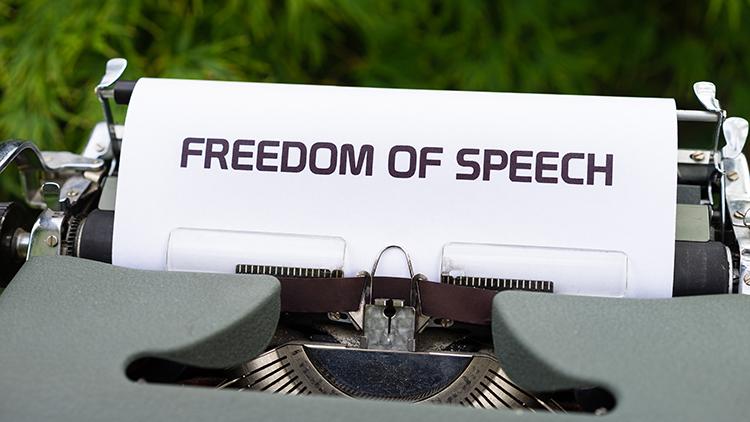Minister commissions study on self-censorship
Teachers and students sometimes bite their tongues

Some statements are applauded while others are met with angry responses – or both at the same time. Sometimes people prefer to stay silent rather than deal with criticism (by the media, internet trolls or colleagues).
But how prevalent is self-censorship? At the insistence of the House of Representatives, the Minister of Education, Robbert Dijkgraaf, had the matter researched by the agency Technopolis. The report was published one week before Christmas.
A regular occurrence
Students and teachers censor themselves regularly, the report shows. In disciplines such as Law, Economics, and Behaviour & Society, no less than 25 percent of teachers have censored themselves when talking to students in the past three years. The same goes for students from almost all fields, who do the same when speaking with teachers and fellow students. Those enrolled in programmes like Law and Educational sciences do it frequently.
“It worries me that there are researchers, students and teachers who feel limited when expressing themselves, even to the point of censuring themselves, and I expect a free and open academic culture is and will remain a priority at all institutions”, the minister declares in a letter. “At the same time, I do not believe that higher education and science are alone in that regard.” He is referring to the polarisation of the societal debate, as well as the "politicisation" of topics in society.
Magnifying glass
In general, researchers are less likely to censor themselves than others. But 24 percent of those working in healthcare have done so in press releases, interviews or informative online texts. How come? Those interviewed suggest that healthcare was under a magnifying glass during the Covid-19 pandemic. The pressure to perform and the hierarchy in the field were also mentioned as contributing factors to self-censorship.
In comparison, only 1 percent of researchers in the agriculture and nature sectors say they have censored themselves for whatever reason. For natural scientists, this figure is 2 percent.
Contradictions
Some of the outcomes seem to contradict one another. For instance, only a few people in law faculties say that they apply self-censorship. At the same time, they indicate that they’re very concerned about the subject: fifty percent of respondents believe the diversity of perspectives is under threat.
Please note, however, that only 24 people at law faculties completed the questionnaire. The report analyses the responses of just under five hundred teachers and researchers, out of the approximately five thousand that were approached. The response rate was higher amongst students: 39 percent. 841 students completed the questionnaire.
How do the respondents define self-censorship, by the way? Academic freedom isn’t the same as freedom of speech. Sometimes one bites their tongue because they don’t have enough evidence to support their opinion. Or, as Dijkgraaf puts it, “academic freedom is bounded by conducting research and by principles of scientific integrity such as honesty, meticulousness, transparency, independence and responsibility.”
People can also subconsciously adapt their behaviour, without considering the behaviour undesirable. This means they are trained to think in specific ways and conform to certain opinions. Such "brainwashing" (as the report calls it) is difficult to measure.
Threats
The authors of the report can’t say if things were better before. Polarisation might have contributed to self-censorship, but there are no previous measurements. In five years, the Ministry of Education, Culture and Science will have this research conducted again, Dijkgraaf promises. “Until then, the ministry will monitor things closely.”
Dijkgraaf wants to have better insight into the complaints and reporting procedures at higher education institutions. He has also set up a safety hotline which helps researchers faced with threats and intimidation. The conversation on academic freedom must continue, he believes.